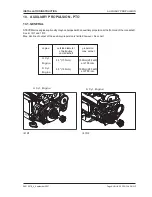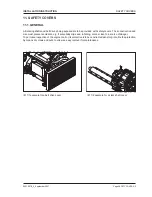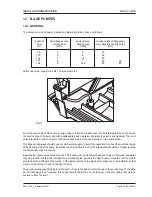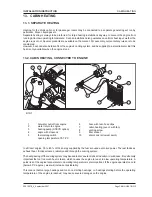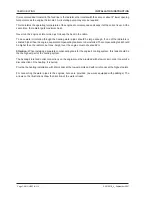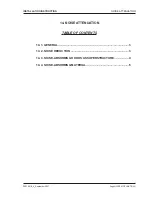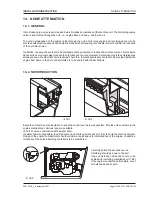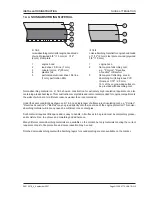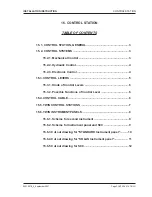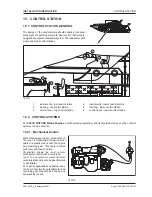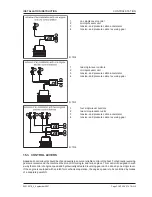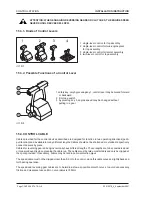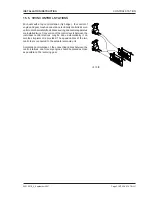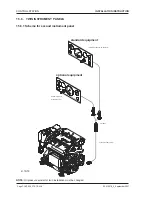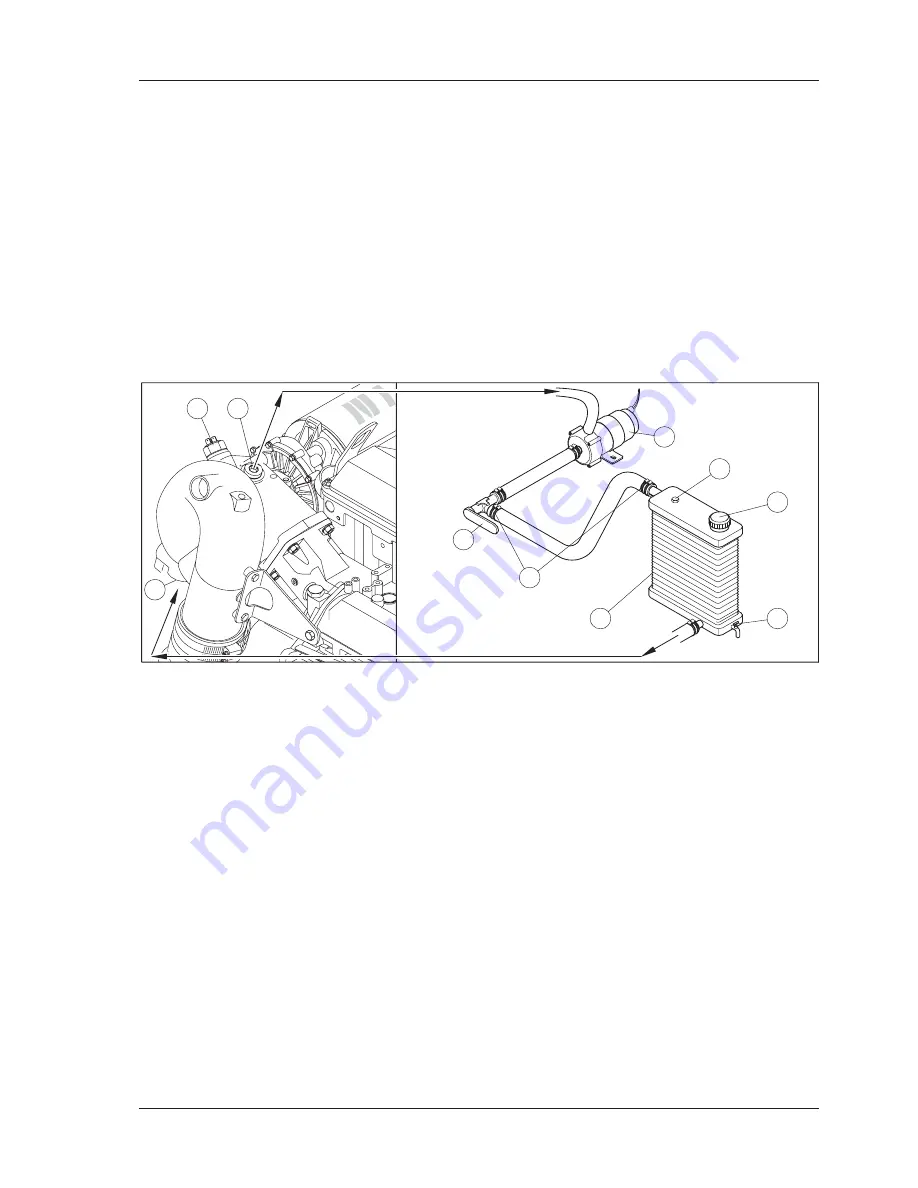
Z001007/0_4_September 2007
Page CABIN HEATING-3
CABIN HEATING
INSTALLATION INSTRUCTION
13. CABIN HEATING
13. 1. SEPARATE HEATING
Heating for the ship's cabin or for passenger rooms may be connected to a separate generating set run by
petroleum, Diesel, liquid gas etc.
Separate heating is always to be preferred, for large heating installations anyway, to prevent the engine from
running at too low operating temperature. Such an installation also guarantees a uniform heat input, wether the
engine runs or not. Several products are available on the market. For assembly, current safety rules are to be
considered.
However, heat can also be taken from the engine's cooling system, and be supplied to a small radiator. But this
heat is only available when the engines runs.
13.2. CABIN HEATING, CONNECTED TO ENGINE
In a Diesel engine 35 to 40 % of the energy supplied by the fuel are used as motive power. The rest fades as
exhaust heat, frictional losses, radiation and through the cooling system.
The heat passing off the cooling system may be used to some extent to heat the cabin. In such case, it is extremely
important that not too much heat is taken, which causes the engine to run at too low operating temperature. A
quick rise of the engine temperature to operating temperature is also important. If the engine operates too cold
(below 65°C approx.) wear will increase considerably.
This means that too large heatings and too soon starting heatings, i.e. heatings starting before the operating
temperature of the engine is reached, may cause severe damages on the engine.
1
hot water outlet from engine
2
water return to engine
3
heating pump (STEYR option)
4
angle with stopcock
5
thermal-lag switch
opening temperature 70-74 °C.
6
hose with twin hose clips
7
cabin heating (event. with fan)
8
venting screw
9
filler socket
10
drain cock (at lowest point)
ill.13/1
1
5
2
4
6
7
3
8
9
10



